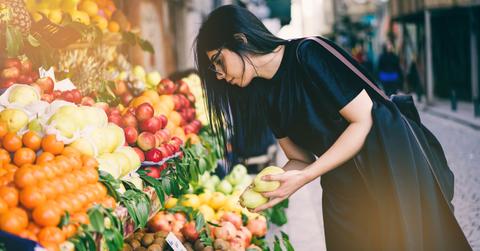How to Store Produce Without Plastic
It’s not impossible to store produce without plastic. In fact, it’s probably healthier.
Updated Jan. 22 2019, 1:24 p.m. ET

It’s not impossible to store produce without plastic. In fact, it’s probably healthier.
Plastic leaching is a real problem when it comes to our food. The toxic chemicals within plastic (think parabens and other nasty stuff that contributes to health issues like cancer and infertility) leach from our plastic containers and wrap and seep into our food. In turn, it makes its way into our bodies. Yuck!
Not to mention, plastic is not a sustainable or eco-friendly material. By eliminating all kinds of plastic — especially single-use plastic — from our kitchens and everyday lives, we cut back our carbon footprints, as well as reduce our exposure to harmful toxins.
If you’ve begun the journey of buying sustainably — also known as buying without single-use plastic — then you may be wondering how you are supposed to store produce. Traditionally, people buy the plastic-wrapped groceries from the store, then throw it in the drawers of the refrigerator until it’s time to use it. Then, you cut off the plastic and use your produce accordingly. But there’s a way to do it that eliminates plastic altogether.
Keep reading to find out more about storing produce without plastic!
How to Store Vegetables Without Plastic
First, try to buy your vegetables without plastic or rubber bands. You can do this by using cotton mesh bags with tare weights on them, which are reusable and sustainable. If you can’t avoid buying vegetables without plastic, then make sure to unwrap the veggies from the plastic and remove any binding bands before the storage process.
How to Store Fruits Without Plastic
The biggest threat to storing plastic without fruit is moisture, as it contributes to mold. For this reason, you’ll want to remember that fruits like berries and cherries don’t do well stacked on top of each other. When storing them, you’ll want to limit how many berries and cherries are stacked on top of each other. The more space they have between them, the better (and longer) these fruits will fare.